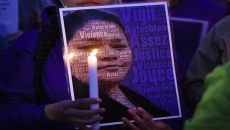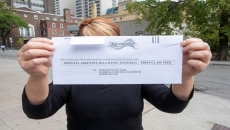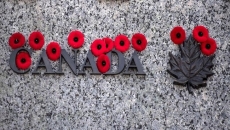Balancing the fight against COVID-19 with efforts to jump-start the economy in Ontario has highlighted communications problems that have sown confusion and could erode trust in public health advice, experts say.
Steven Hoffman, a professor of global health, law and political science at York University, said much of the fault falls at the feet of the provincial government.
"The rules are complex and they haven't been communicated as clearly as needed," he said. "And some of them just don't make sense."
In Ontario, social gatherings are limited to a maximum of 10 people indoors and 25 outdoors. But the indoor capacity for businesses such as casinos, bars and restaurants is 100 people, as long as they follow all public health guidelines.
"If it's in our homes, then we're allowed to do one thing but if we all go to a casino then more of us can hang out together," Hoffman said.
He pointed to Thanksgiving as a perfect example that highlights the unclear and conflicting messages authorities are giving to the public.
Dr. Barbara Yaffe, the associate chief medical officer of health in the province, advised Monday against mixing households on the holiday.
Just two hours prior, Premier Doug Ford urged Ontarians to use their judgment and common sense on Thanksgiving. People should "tighten" their social circles, he said, without explaining how tight.
So the public is left with rules and guidelines that aren't congruent, Hoffman said.
"Maybe I shouldn't have Thanksgiving at home, but maybe we go have it at a casino," he said.
Hoffman said the messaging in Ontario shifted in June when the politicians began talking about easing restrictions and the province came up with a numeric stage system.
"I was quite concerned in June when the rhetoric around the reopening of society was framed as getting back to business," Hoffman said.
"Stage 1, Stage 2 , Stage 3 implies that it only goes in one direction."
The public has not been properly prepared through communications to expect a rollback of restrictions, thereby making behaviours difficult to change.
"It is going to be hard to reimpose those layers of protection, and indeed, unfortunately, we're seeing that right now and it's been really confusing," Hoffman said.
Maya Goldenberg, a philosophy professor at the University of Guelph who examines communications and has a book coming out about vaccine apprehension, said the public needs clear directions from the government.
"People want consistency and to know that this is part of a plan and not a random smattering of directives," she said.
"Without being able to find that common thread, we get suspicious this is not being directed very well."
Ford defended his team's communications on Monday when asked if the public was tuning him out.
"I totally disagree with that because I'm out there and talking to the people," he said.
Goldenberg said the province's messaging had been strong and clear through much of the pandemic until about a month ago when schools reopened and mixed messaging led to confusion about what symptoms required tests for students.
That in turn led to massive lineups at assessment centres and overwhelmed laboratories where the tests are processed.
The province said it never directed school boards to demand COVID-19 tests, but recently changed its testing protocols. Boards have since handed out decision trees that parents are supposed to follow, which is different from the rules sent out last month.
The overwhelming demand for COVID-19 tests in the province over the past month also led to changes at assessment centres. People seeking a test must now make an appointment rather than simply show up.
Public health officials and epidemiologists across the country have long espoused the need for massive testing in order to stop the spread of the virus.
"But when the government comes out and says our testing centres are overwhelmed and we're going to change the criteria for children being tested, it sounds like a resource problem and not a public health directive," Goldenberg said.
"We're at this point where science was upheld on how to get out of this problem and when it's not followed, it creates a lot of mistrust and even confusion from the public about who's directing our pandemic response right now."
She said decisions are being made on resources and cost concerns, which is not wrong, but is different than what much of the public wants at the moment.
"Right now people want to put health as the first priority, not spending," she said.
Goldenberg said politicians deferring to public health officials to justify certain rules in the first few months of the pandemic led to a great amount of trust with the public.
"The way to do it well is to have consistent messaging and clear justification for actions being made," she said, "but that's not happening right now."






